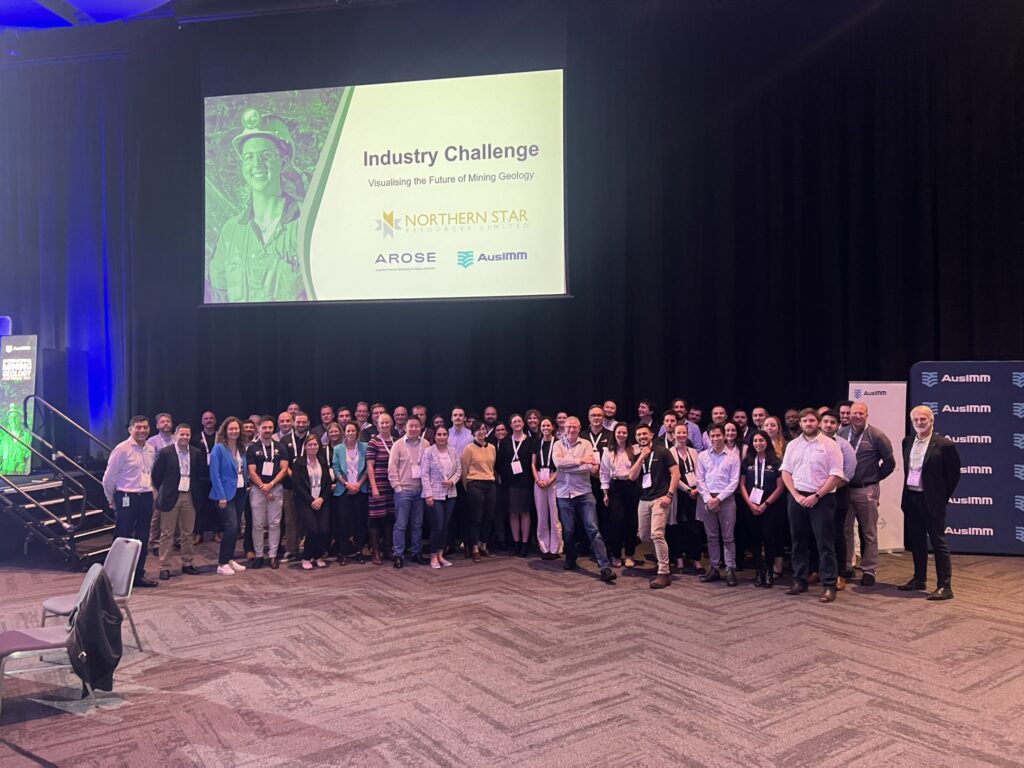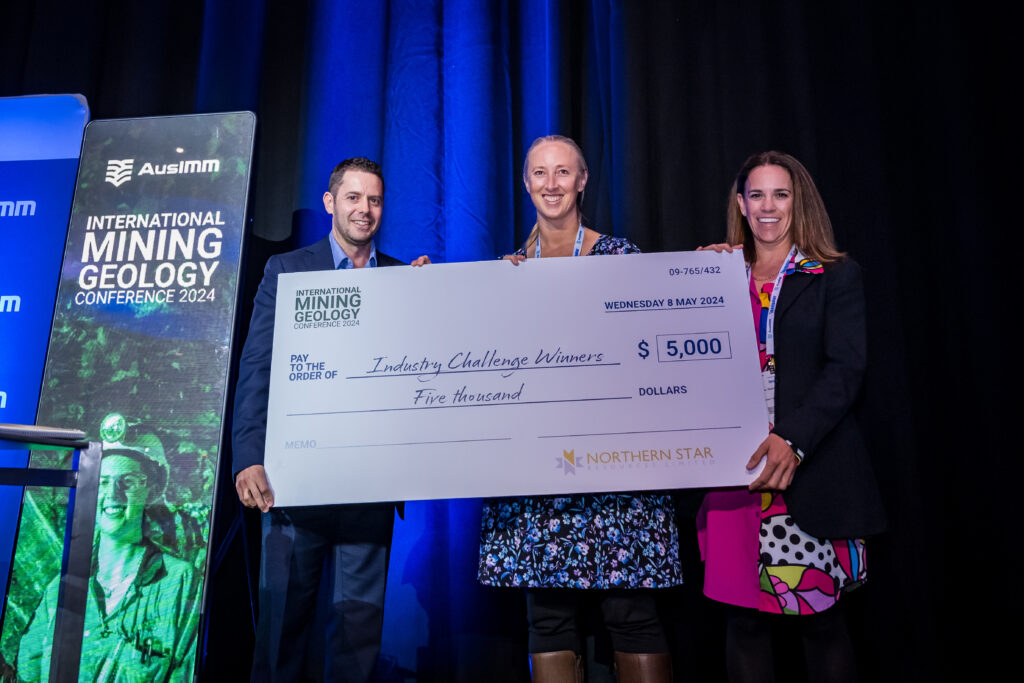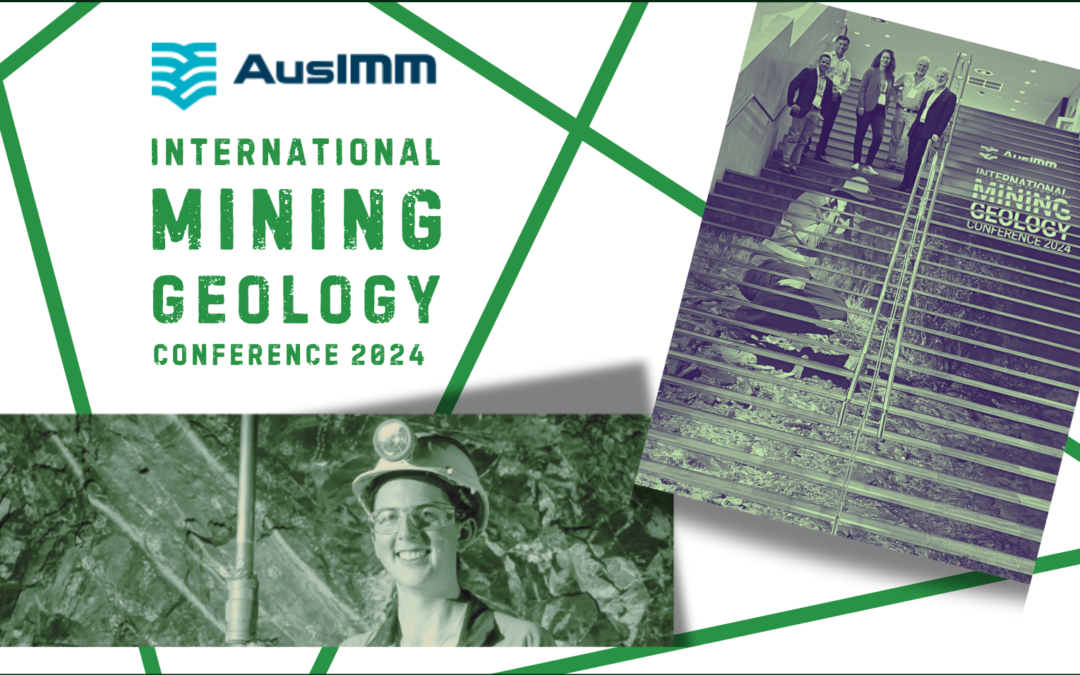Last week, Mark Berry attended the thirteenth running of the International Mining Geology Conference (IMGC) held in Perth. This conference series commenced in 1990 and Mark has attended 12 of the 13 conferences that have been held around Australia and New Zealand.
This year’s conference consisted of a one-day Industry Challenge that preceded the main two-day conference. There were also a number of workshops and tours that ran in conjunction with the conference. Mark was on the organising committee of both the Industry Challenge and main conference.
The Industry Challenge was titled “Visualising the future of Mining Geology” and involved 54 people competing in 12 teams. At the start of the day, all teams were advised that “The Australian Government has completed a major review of workplace health and safety in the mining industry and has implemented a new policy in which all surface and underground mining and related activities must be automated or remotely operated – commencing from 1 July 2029. Consequently, no personnel will be permitted to enter any mining area.” The challenge was to develop a conceptual, high-level workflow for all mining geology operational tasks where person-entry will no longer be permitted. Teams had to prepare a 3 minute presentation by the end of the day summarising their plans. The first prize was $5,000, plus the opportunity to present the winning pitch at a NASA virtual workshop in late-May 2024, and visit the Fugro SpAARC mission control centre in Perth.
This is the first time such an event has been held at the IMGC and the overall consensus was that it was a great success. All teams delivered excellent “pitches” by the end of the day and these were screened to all delegates attending the main conference. Whilst there was a lot of overlap in the presentations, there was also innovation and out-of-the-box thinking.
The main conference saw over 30 presentations during the two days and many excellent case studies of what mining geology teams are doing around the world. Over the course of the last three or four IMGCs, there has been an ever-increasing number of presentations on machine learning and artificial intelligence applied to geological work flows. This has always been tempered with the need to maintain a very strong focus on understanding the geology and controls on mineralisation to control any “black box” systems.
In conclusion, 2024 was another interesting and informative event, with opportunities to meet up with many colleagues and friends. The next IMGC is scheduled for 2026.



